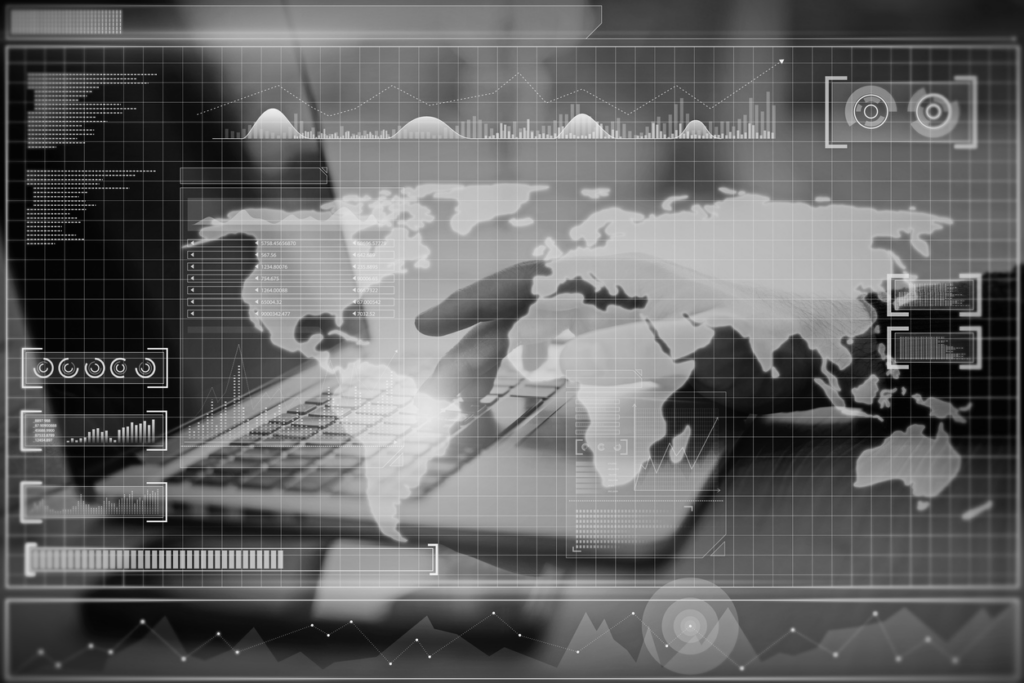by David Hutchins – Industry Analyst
The Department of Defense (DoD) is consistently adapting to compete with and deter potential adversaries as advancements in technology continue to change the nature of warfare. As the capabilities of potential adversaries become more sophisticated and the U.S. military seeks to maintain its technological advantage on the battlefield, the ability to quickly correlate, evaluate, and disseminate data becomes increasingly critical. Leveraging the Internet of Things (IoT) is one key to the future success of the U.S. armed forces.
What is the Internet of Things?
The Internet of Things is a network of physical objects, or things, embedded with software, sensors, or other technologies for the purpose of connecting and exchanging data with other devices and systems over the internet. IoT devices range from ordinary household objects to sophisticated industrial tools. Within the realm of the U.S. military, IoT connects satellites, radar, smartphones, wearable devices, munitions, drones, aircraft, ground vehicles, naval ships, weapon systems, and much more into a cohesive network. The armed forces can use legions of these devices to continuously collect, process, and share data.
IoT Implications for Future Warfare

The complexities of contemporary warfare are pushing militaries toward a more integrated warfare approach that leverages data and connectivity. IoT provides the abundance of data and connectivity needed to gain an advantage on the battlefield. A cohesive network of IoT devices improves situational awareness, risk assessment, and response time. For example, the U.S. military transmits data collected by IoT through C4ISR systems that process and disseminate the most mission-critical information, such as incoming threats, patterns in enemy behavior, and supply chain anomalies. IoT has numerous other applications including gathering battlefield data, monitoring troop health, and managing fleet logistics. This military application of IoT is also referred to as the Internet of Battlefield Things (IoBT) or the Internet of Military things (IoMT).
Ultimately, IoT gives a more complete picture of the battlefield and provides decision-makers with sufficient data at the speed of mission, enabling real-time, informed battlefield intelligence. IoT can also be integrated with edge computing and artificial intelligence (AI) or machine learning (ML) to interpret and optimize battlespace operations in milliseconds. This capability is critical to actualizing Joint All Domain Command and Control (JADC2) — the DoD’s concept to connect sensors from all of the military services (Air Force, Army, Marines, Navy, and Space Force) into a single network of combined intelligence, surveillance, and reconnaissance (ISR) data. The U.S. military is even using IoT to gather, process, and transmit data in contested and remote environments by leveraging technological advancements such as 5G and long-range wide-area networks (LoRaWAN).
IoT Spotlight
The Armaments Research Company (ARC), in partnership with Sig Sauer, is using IoT technology to provide soldiers with real-time data on the condition and readiness of rifles selected for the Army’s Next Generation Squad Weapons (NGSW) program — an effort the Army launched in 2017 to prototype and develop more lethal small arms for the close combat force. ARC’s platform will reportedly use an IoT system to monitor individual weapons at scale. According to ARC, the resulting insights will enable units to regularly assess weapons’ condition, reduce failure rates, extend the weapon lifetime, and optimize maintenance plans. This will ultimately enhance performance, reduce costs, and improve combat readiness.

Another example of IoT-enabled warfighting is the Command, Control, Battle Management, and Communications System (C2BMC). Using 48,000 miles of classified communication network lines, C2BMC merges data from hundreds of sensors, radars, and satellites, connecting different elements of the U.S. military’s Ballistic Missile Defense System (BMDS) into one central hub which can be used to counteract threats all over the world. By leveraging IoT, C2BMC is a force multiplier for global military operations.
Challenges on the Horizon
Familiar to all in the defense industry is the importance of cybersecurity. The unfortunate reality of IoT is that broad, interconnected networks have a larger attack surface for malicious actors to target. If compromised, inadequately secured networks could provide enemies with strategic information such as troop movements and logistics. Unlike commercial network infrastructures, the military’s IoT must be ready to operate in hostile or unstable environments which can require a high degree of intelligence to navigate. To mitigate cyber threats, the DoD must work with industry allies to protect its networks by layering multiple cyber defense techniques — such as adding detection systems, training personnel, and collecting data on adversaries.
To read more thought leadership from David, connect with him on LinkedIn.










